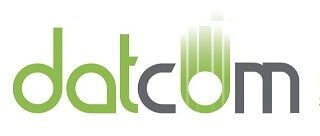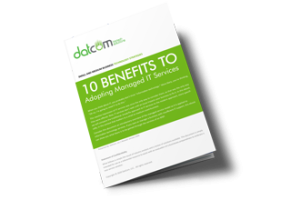Data Processing Automation has a powerful role to play in scaling your business. When you use software tools to automate mundane, repetitive, computer-based tasks, your people can then focus on higher value work that leads to business growth. That could be as simple as enabling more sales for increased profits. But scaling a business has many other challenges, most of them organizational, and it takes a lot of planning over many weeks to structure a growing business.
DPA has the potential to dramatically improve efficiency and help shape your organization in several ways.
DPA makes scaling possible through increased efficiency and profits.
DPA increases efficiency by boosting productivity in administrative settings. A good strategy for implementation is to start in departments where efficiency gains are greater. In areas where office work consists of manipulating structured data such as in accounting, businesses will experience efficiency gains as high as 80%. Other areas will generally see gains of 27%. These reductions in labor significantly lower operating costs, which improves a business’s scalability. By coupling these efficiency gains with a sound strategy for increasing profitable work, companies can see a 14% increase in earnings.
DPA aids business scalability by making it easier to hire.
A critical part of scaling a business is finding the right talent. The current labor market is tough on businesses because many of the most highly skilled workers are looking for remote work opportunities. And some are starting businesses of their own as freelancers and consultants. If a business relies on DPA to automate labor, it can allocate more of the budget for highly skilled workers. It can spend more on providing perks and benefits or creating a better workplace culture. A company can also use DPA to decrease onboarding costs and complexity by automating tasks like setting up IT user accounts for new employees.
DPA makes scaling easier by enhancing visibility.
One of the great advantages of DPA is that automated processes are easier to track. In the hands of a human being, there’s no telling how far afield someone might go from completing a task quickly. Distractions in the workplace or remote work environment can result in slow processing times, errors, and rework. After lunch brain fog leaves little traces, even though the worker was logged in and supposedly working efficiently. However, when a business automates a process, it’s easy to see exactly what is going on and how long it takes to complete. This degree of visibility makes it much easier to replicate business processes on a larger scale.
DPA helps with the problem of “more.”
According to an article in Harvard Business Review, the essential problem with scaling a business is the problem of “more.” When a business goes from occupying one location to multiple facilities, it requires many organizational changes and a transformation of communication patterns. Whereas a small business might enjoy the luxury of close relationships and shared vision, as a company grows, it will need to restructure itself to remain efficient. From more people to more offices, the good problem of “more” can easily outpace an organization’s agility and produce growing pains. DPA is capable of automating so many processes that it gives a relatively young organization time to focus on its operations, marketing, and future development.
A key element of scaling a business is recognizing what won’t work anymore. When a business is growing, that happens at a very rapid pace. At DatCom, we’ve been planning for the problem of “more.” Our unique EfficientMe service goes a step further than most companies utilizing the same kinds of automation tools. With our Staff Enhancement component, we turn those time savings into opportunities for employee development beyond the ordinary. Other providers of robotic process automation are proposing that employees develop the skills necessary to create their own automations. However, we help employees develop the skills and mindset necessary to go beyond programming to optimize business processes themselves. There’s a reason that more people are starting their own businesses and working as contractors. They desire a sense of agency and control over their own destinies. We embrace “more” and develop your people to make the most of their newfound freedom from the mundane work they’ve grown accustomed to.
Do you have experience scaling a business? Provide your insights in the comments below!


